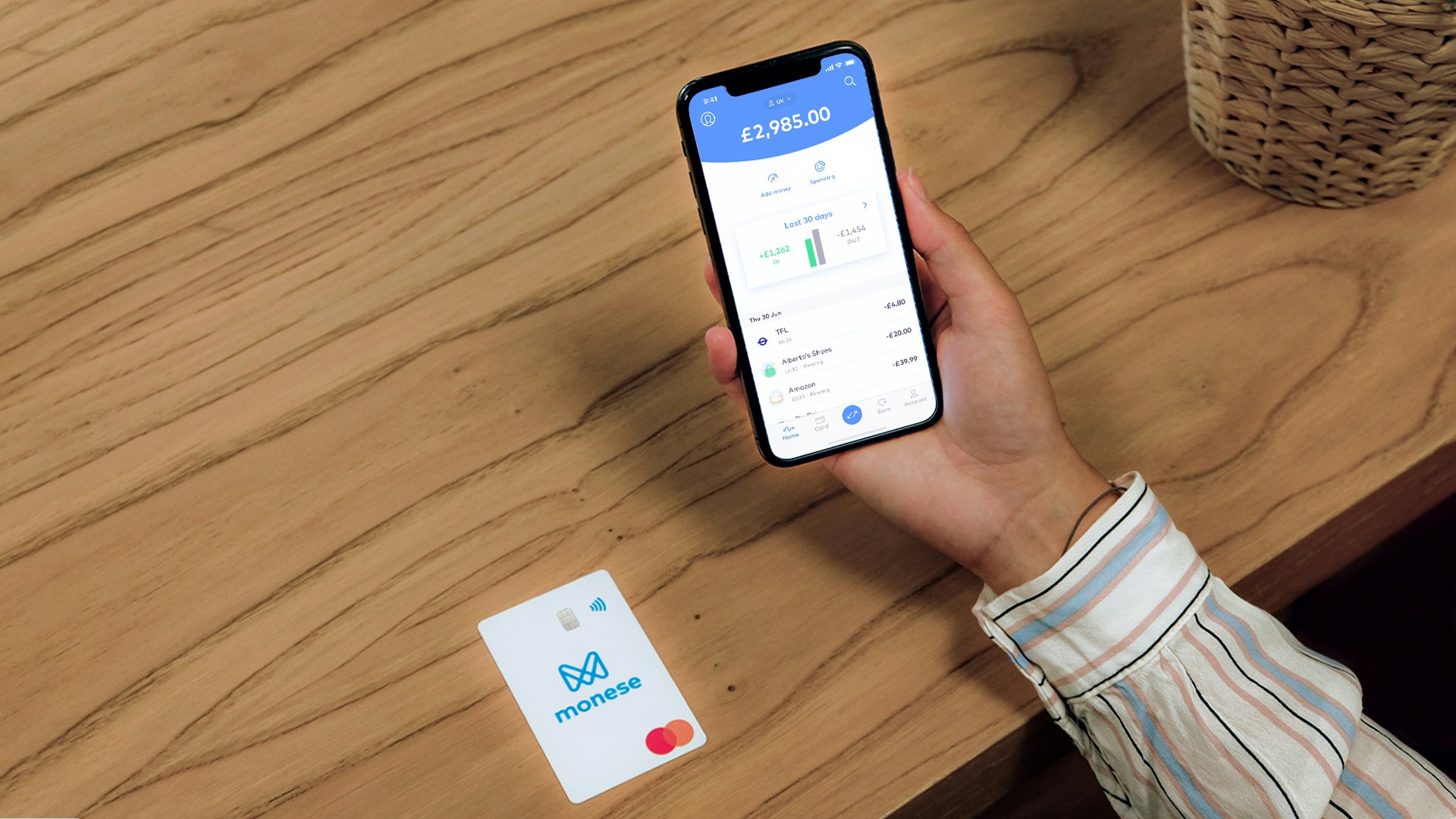Monese, a digital banking app for expats, is expecting to turn 30 employees into paper millionaires after its next fundraise, which will reportedly value the company at £1bn.
In an interview with Sifted, chief executive Norris Koppel declined to comment on the alleged valuation but said that Monese's staff equity scheme had already minted over 20 paper millionaires — with several more expected at the next round.
“Everyone working at Monese has employee share options… It's about giving employees pride of ownership," the serial-entrepreneur said, adding that giving shares was a better way to motivate staff than fear.
London-based Monese, which has had over 2m downloads, is far from the only European fintech to have made early employees very affluent (at least on paper).
TransferWise documented 33 paper-millionaires after being valued at $3.5bn in 2019, according to Sifted calculations, and Revolut has already made at least three executives into actual millionaires after they cashed out last October.
But the wealth being created by these fintechs could well fund and add depth to the European startup ecosystem. For example, a large number of former "TransferWisers" have cashed out and gone on to spawn and invest in a wave of new startups. Similarly there is an army of people from Skype and Spotify who have done the same.
For now, however, the big question for Koppel and his 400 employees is whether Monese can turn itself into a world-class business and, eventually, deliver considerable value at exit.
Slow burner
Despite having a “pay-to-use” offering, Monese’s financials are on the smaller side. It reported £5.5m in revenue in 2018, which paled against Revolut's reported revenues of £58.2m for that period. Both companies launched nearly five years ago.
Additionally, while Monese has had a significant number of downloads (beating Starling), the digital-app has grown the slowest of its peers when adjusting for time.
In the interview with Sifted, Koppel argued that the company wasn't intent on "high growth", calling Monese a “do-good” company first-and-foremost. Nonetheless, it has previously communicated it's aiming to have 5m customers by year-end.
It declined to comment on the size of its deposit base.
Perhaps most worryingly for Monese is that it faces potential disruption from upcoming EU banking regulation, which aims to homogenise onboarding rules.
This would, for instance, allow an Italian to automatically open a bank account in France; somewhat shrinking Monese's central pitch of helping foreigners get banked across different regulators.
Koppel also talked about the difficulties around Monese's business offering, which he said had seen underwhelming uptake, onboarding only a couple of thousand small and medium-sized enterprise (SME) customers so far.
Paper money into real money
Modest user-growth aside, however, Monese does have the advantage of having built a differentiated audience of expats across 31 European states.
The app has filled a niche by being operational in 14 languages, including Romanian and Portuguese (its next closest rival, Holland's Bunq, offers six). Monese is also unique in allowing users to deposit cash via 40,000 UK post offices, targeting the remittance audience.
Unlike most of its peers, Monese also already has a direct-revenue stream, with 46% of Monese's active UK customers paying for its premium offering in return for Avios points among other perks. Users also trust it: 72% pay their "salaries" into Monese as their primary overseas account (in comparison, only a third of Monzo's customers do).

Overall, that puts Monese in a strong position for profitability: a golden but oft-neglected metric.
"If you do the unit economics [per active customer], we've been profitable since 2017," said Koppel in the interview with Sifted, explaining that the revenue from subscriptions and interchange fees covered per-customer operational costs.
"We earn more money per active customer than we spend on having this customer. This is across all our pricing packages including the free Simple package."
Indeed, the company prides itself on being "the lean fintech", having raised $100m raised to date compared to N26's $680m and Revolut's $837m.
Koppel also told Sifted that he’s unfazed by his peers’ valuations after Revolut was priced at $5.5bn this week.
"I'm not one to comment on extreme valuations, but it can be dangerous for the space to be overpriced," he noted.
Koppel added they expect to break-even in 2022, making the upcoming fundraise its last.
The UK's next unicorn: steep plans
Monese’s next steps will be critical to defining its shareholders' value.
To boost its revenue stream, Monese will soon allow UK customers to apply for credit. The offering is expected imminently.
With its average UK customer aged 18-24 and earning £30k a year, Monese will have a strong lending audience.
Koppel also told Sifted its interest rate on loans could be anywhere up to 39%. This surprisingly high rate may be down to Monese not being a bank but rather an e-money institution, meaning they'll need to leverage (or acquire) a third-party to provide loans at an added cost.
Elsewhere, the company's strategy will focus on boosting its presence outside of its UK stronghold (where 50% of its users are based). Koppel says they've ruled out Africa but hinted at potential expansion to the US or Australia, noting they'd "mapped them out closely", and saw benefits to following the likes of Revolut into battle.
"The first ones are often the ones who get shot," he noted.
Monese may also be seeking to boost its prospects with a series of high-profile rumoured hires, including FTSE-250 heavyweight Danuta Gray.
Talent magnet
Koppel is unusual as a fintech founder in that he’s experienced financial exclusion first-hand.
Having grown up in modest conditions in Estonia (“there wasn’t an abundance of money”), Koppel left home as a teenager to earn a living.
University fees and a string of business failures then pushed him deep into debt, which he says “haunted” him. He eventually moved to the UK, where he witnessed another gap in the system after waiting three months to get banked.
As a result, Koppel isn’t just ‘talking the talk’; Monese is more personal than that. Indeed, today, Koppel funds a foundation in Estonia that gives children a financial education, though he’s reticent to discuss his philanthropic efforts.
Koppel also seems to impress the people who surround him: his staff. According to Glassdoor, Monese scores top among the main banking apps for employee approval.
Koppel explains that he is drawn to employ people like him — "simple" — and to "hire smarter", having personally interviewed the first 150 employees himself to test their ethics.
"We thought a lot about the culture before starting... TransferWise was an inspiration, we wanted to emulate that," he said, crediting the money-transfer company's fellow Estonian founders.
Monese's rating could eventually suffer the same fate of its peers when it enters hyper-growth mode; for instance, Starling dropped from 4.67 in February 2019 to 3.7 today.
Nonetheless, something tells me that as long as Koppel is at the helm, Monese will have a strong (albeit perhaps modest) future.
A happy workforce breeds happy customers, after all.

